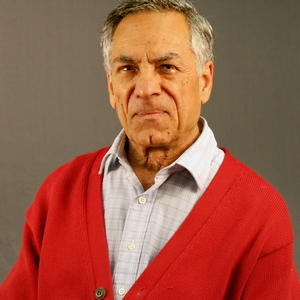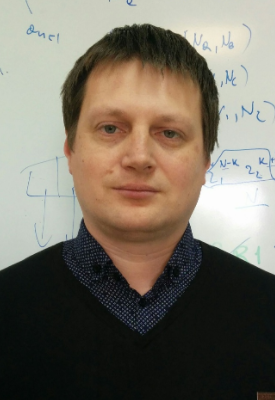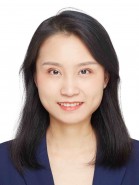| Prof. Francisco de LeonFIEEE, Editor-in-Chief of IEEE Trans. Power Systems New York University, US Francisco de León received the B.Sc. and the M.Sc. (Hons.) degrees in electrical engineering from the National Polytechnic Institute, Mexico City, Mexico, in 1983 and 1986, respectively, and the Ph.D. degree in electrical engineering from the University of Toronto, Toronto, ON, Canada, in 1992. He has held several academic positions in Mexico and has worked for the Canadian electric industry. He is now a Professor in the Department of Electrical and Computer Engineering at New York University. His research interests include the analysis of power phenomena under non-sinusoidal conditions, the transient and steady-state analyses of power systems, the thermal rating of cables and transformers, and the calculation of electromagnetic fields applied to machine design and modeling. Prof. de León has published over 200 papers (over 100 in the IEEE Transactions), 5 book chapters, and holds 18 patents. He has graduated 29 Ph.D., 31 M.Sc., hundreds of undergraduates, and directed the research of 27 post-doctoral researchers. Since January 2020 he is the Editor-in-Chief of the IEEE Transactions on Power Delivery. Speech Title: AI in Power Engineering Education Abstract:Students in some power engineering courses (e.g.: Power System Analysis, Transmission and Distribution, Electromagnetic Transients) are permitted to use any AI tools not only for independent learning but also to solve and deliver all grading instruments. This includes: homework, readings, quizzes, mid-terms, finals, and even projects. The students are allowed to use any AI tool (free or paid version) at their disposal. But the instructor has only tested the free versions of ChatGPT and DeepSeek. The outcomes of three academic semesters of this policy are mixed. On one hand the students are substantially more efficient and can achieve greater results. Students do better in exams and produce more ambitious projects. On the other hand, while most students learn the concepts as before, a few students can get a passing grade without truly understanding what they are doing. Mitigation techniques include to request the answers in one line (say mention the most important concept only). Also, we have implemented to reduce “x” points for any irrelevant answer and “y” (with y>x) points for incorrect answers. In 2024 AI tools could get 30/100 points in exams. Today (May 2025) the tools can get up to 60/100 points. |
| Prof. Om P. MalikIEEE Life Fellow, Fellow of the Canadian Academy of Engineering University of Calgary, Canada Professor Om P. Malik has done pioneering work in the development of controllers for application in electric power systems and wind power generation over the past over 59 years. After extensive testing, the adaptive controllers developed by his group are now employed on large generating units. His other interests include digital protection, control of renewable power generation and micro-grids, and AI applications in power system control. Professor Malik is a Life Fellow of IEEE, and a Fellow of IET, the Engineering Institute of Canada, Canadian Academy of Engineering, Engineers Canada and World Innovation Foundation. He is a registered Professional Engineer in the Provinces of Alberta and Ontario, Canada, and has received many awards. He was Director, IEEE Region 7 and President, IEEE Canada during 2010-11 and President, Engineering Institute of Canada, 2014-2016. Speech Title: Automatic Tuning of Inverter Parameters for Renewable Energy Sources Abstract: Micro-grids as distribution networks with distributed energy sources have gained significant interest over the past 25 years. The energy sources are predominantly renewable energy sources, most of which are interfaced with the network through power electronics converters. AC/DC converters are conventionally regulated by fixed parameter proportional integral (PI) controllers designed off-line for a nominal operating condition. Their performance is affected by the change of parameters of passive components depending on operating conditions. Thus, they cannot provide good converter performance over its entire operating range. Converter performance can be improved by using adaptive control that can track the operating conditions in real-time. An adaptive controller that determines, in real-time, the parameters of the system model transfer function and computes control to match the system parameters is proposed. Converter performance in a hierarchical control environment in a microgrid is described. |
| Prof. Sergey VerlanUniversity Paris Est Créteil, France Dr. hab. Sergey Verlan received his PhD in Computer Science at the University of Metz, France (2004). He obtained a habilitation in Computer Science at the University of Paris Est Créteil (2010). Currently he is a full professor at the University of Paris Est Créteil (France). He is the president of the steering committee for the conference Machines, Computations and Universality and member of the steering committee for the International Conference on Membrane Computing. He is also Member of the International Membrane Computing Society (IMCS) and editor for the Journal of Membrane Computing. His research interests cover several topics, including membrane computing, natural/DNA computing, unconventional computing, formal language theory, study of complex dynamic systems, FPGA digital circuit design and applications in biological modelling and robotics. He has more than 100 publications, including 6 edited volumes of conference proceedings and special issues. He also participated in writing of more than 15 books and book chapters. Speech Title: Numerical Models in Membrane Computing Abstract: Membrane computing, a computational model inspired by the structure and functioning of living cells, has emerged as a significant area in the field of natural computing. This presentation explores the various numerical models within membrane computing, highlighting their unique features and practical applications. We will delve into numerical networks of cells, a generic model that allows to precisely describe the semantics of the computation, then we will examine Numerical P systems known for their ability to model complex systems. The focus will also extend to numerical spiking neural P systems, combining the principles of spiking neurons and numerical variables to address problems in neural computation. Additionally, fuzzy reasoning P systems, which incorporate fuzzy logic into the membrane model, will be explored for handling imprecision and uncertainty in real-world applications. Through these models, we will demonstrate how membrane computing offers innovative solutions for fields such as artificial intelligence, fault diagnosis and optimization, showcasing their potential in both theoretical and practical scenarios. This presentation aims to provide a comprehensive overview of these numerical models, offering insights into their functionality and application across diverse problem domains. |
| Prof. Yanjiao ChenIEEE Senior Member Zhejiang University, China Yanjiao Chen received her Bachelor's degree from the Department of Electronic Engineering at Tsinghua University in 2010 and Ph.D. from the Department of Computer Science and Engineering at the Hong Kong University of Science and Technology in 2015. She previously served as a Postdoctoral Fellow at the University of Toronto, Canada, and as a Researcher at Wuhan University. Her primary research focuses on intelligent IoT security, with over 100 papers published in internationally renowned journals and conferences. Shee has been awarded the First Prize of the Zhejiang Provincial Science and Technology Progress Award, the Natural Science Award of the Chinese Institute of Electronics, and has been selected for the "China Association for Science and Technology Young Talent Support Project" and the DAMO Academy "Qingcheng Award Most Potential Prize." She serves as a program committee member for top-tier international conferences such as ACM CCS, USENIX Security, NDSS, and IEEE INFOCOM, and is an editorial board member for international journals including IEEE TIFS. Speech Title: A Knowledgeable, Insightful, and Portable LLM-Powered Shell Command Explainer Abstract: Malicious shell commands are linchpins to many cyber-attacks, but may not be easy to understand by security analysts due to complicated and often disguised code structures. Advances in large language models (LLMs) have unlocked the possibility of generating understandable explanations for shell commands. However, existing general-purpose LLMs suffer from a lack of expert knowledge and a tendency to hallucinate in the task of shell command explanation. In this talk, we will present a knowledgeable, expressive and portable shell command explainer powered by LLM. We infuse the LLM with professional knowledge to provide comprehensive explanations on shell commands, including not only what the command does (i.e., behavior) but also why the command does it (i.e., purpose). This work may boost further research efforts on leveraging LLM for network security in smart grid. |




